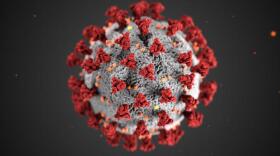As President Joe Biden calls for a 100-day mask challenge, a new study finds the majority of adults in the U.S. still don't wear masks consistently when they socialize with people outside of their household.
And that's despite about nine in 10 adults believing that masks protect them from COVID-19.
Published last week, the findings are from the Understanding Coronavirus in America Study out of the University of Southern California.
Sean McCrea is a psychology professor at the University of Wyoming who studies social behaviors. He finds the survey results frustrating, saying it's hard for people to understand why wearing a mask is a health and safety protocol and not a partisan issue.
“People are making their own decision about their risk tolerance, which I don't really know that we can do too much about,” he said.
McCrea compares wearing a mask voluntarily to practicing safe sex or choosing not to drink alcohol.
Jackie Chen is a social psychology professor at the University of Utah.
“There's a good reason people don't like to wear masks because … we really do rely on people's faces to convey information,” she said.
But she says we all have a role to play in making mask-wearing the norm.
So what will it take to change this behavior? Be the change, Chen says.
“Always wear a mask yourself because you're contributing then to a norm where there's more and more people wearing a mask around,” she said. “That's going to lead to people who aren't wearing a mask feeling like the odd ones out.”
This story was produced by the Mountain West News Bureau, a collaboration between Wyoming Public Media, Boise State Public Radio in Idaho, KUNR in Nevada, the O'Connor Center for the Rocky Mountain West in Montana, KUNC in Colorado, KUNM in New Mexico, with support from affiliate stations across the region. Funding for the Mountain West News Bureau is provided in part by the Corporation for Public Broadcasting.







